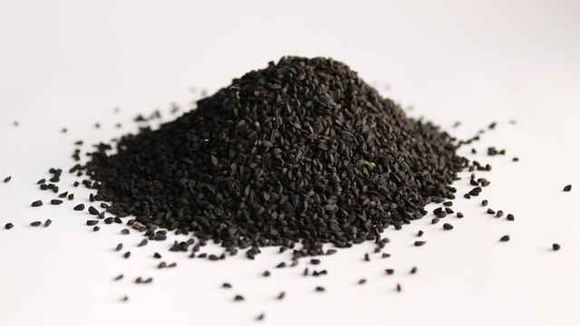What disease is Hashimoto's thyroiditis
Hashimoto's thyroiditis is an autoimmune thyroid disease, which is characterized by diffuse goiter with lymphocytic infiltration, which leads to the destruction of the thyroid gland, causing hypothyroidism. This is a condition in which the thyroid gland does not secrete enough thyroid hormone called thiroxine due to an insufficient amount of iodine. Hypothyroidism is a condition in which the thyroid gland does not produce a sufficient amount of the hormones tyroxine and triiodothyronine (T3) according to the needs of the body.
Some common signs and symptoms of Hashimoto's disease and hypothyroidism are weight gain, depression and constipation, irregular and severe menstruation. While herbal treatment for thyroid health is not found in traditional Western herbal medicine, modern studies of some of these herbs reveals potential clinical uses for hypo- and hyperthyroidism in humans. Chinese medicine, for example, recommends the use of several herbs and herbal formulas designed to deal with diseases and nodules of the thyroid gland. [ref. 1]
Herbal remedies in Hashimoto's thyroiditis - how they can help
Traditionally, treatment options for Hashimoto consists of several components, which include hormone replacement therapy, combination therapy with T4 and T3 hormones, as well as some traditional medicine. According to the data in the publication Treatment of Hashimoto's thyroiditis with herbal medication, Hashimoto's thyroiditis can be addressed using various medical systems such as alopathy (allopathic) and phytotherapy (herbal) drugs. These remedies can help regulate thyroid function and its basic functions. Herbal treatment can be effective and improves thyroid function. There are some naturally occurring herbs and natural remedies such as guggul (Commiphora mukul), Blue Flag (Iris versicolor), Bladder wrack (Fucus vesiculosus) and other seaweed, which are commonly used to treat this disease. [ref. 2] In the next paragraph we will review their action, as well as several other natural remedies associated with improving thyroid function.
Bladder wrack (Fucus vesiculosus)
F. vesiculosus contains flavonoid fucoxanthin and is reported to have the highest antioxidant activity among edible seaweed. This algae is a rich source of iodine and also has a high bioavailability. Like other algae, it is rich in many minerals such as calcium, potassium, and contains moderate amounts of phosphorus, selenium, magnesium and zinc. It also contains a sufficient amount of vitamins A, D, E, K, B2, B3 and B6. All of these vitamins and minerals are needed to improve thyroid function when consumed in the right amount, and Bladder wrack can be a great source.
Guggul (Commiphora mukul)
C. mukul or guggul contains aromatic resins that have many medical uses. It is reported that this flowering plant helps to increase the absorption of iodine by the thyroid gland and also increases the activity of the thyroid peroxidase enzyme. Greater production of T3 with a healthy change in the T3 to T4 ratio indicates a supporting effect of the thyroid gland in the case of Hashimoto. The guggul may also lower lipid levels by maintaining the major metabolic function of the thyroid gland. [ref. 3]
Blue Flag (Iris versicolor)
I. versicolor, also called "Blue Flag", is a small wild wig found in the swampy area of North America. This flowering herbaceous perennial plant helps to promote thyroid function with more T3 production. It is a detoxifying agent and specific to the treatment of thyroid enlargement and goiter. It is also used to treat hepatomegaly (enlarged liver) and splenomegaly (enlarged spleen).
Devil's Mouth (Leonurus cardiaca)
Leonurus cardiaca L. is a perennial herbaceous plant originating in Asia and Southeastern Europe, which is widespread globally as of today. [ref. 4] L. cardiaca may act as a potential adjuvant in the treatment of an overactive thyroid gland due to its action against symptoms associated with hyperthyroidism (palpitations and anxiety). Inhibition of thyroid-stimulating hormone and a decrease in excess production of thyroid hormones have also been considered in studies, whereas the effect has been attributed to the content of rosemary acid. [Ref. 5]
Black cumin oil (Nigella sativa)
This oil has been used for millennia as a tonic for the liver, antibacterial agent, analgesic; as an appetite stimulant and as an immunomodulator. With regard to the thyroid gland, black cumin oil has antibacterial properties against H. pylori, a common Hashimoto trigger. Nigella sativa has also been shown to improve thyroid condition in animal and human studies. In one study, Nigella sativa improved hypothyroid status and reduced serum TSH levels in rats. In another human study, levels of TSH and thyroid antibodies decreased, while T3 concentrations increased after 8 weeks. [Ref. 6]










